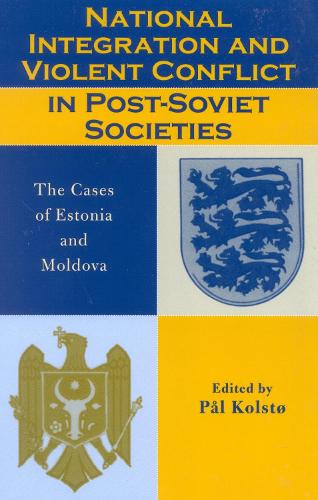
National Integration and Violent Conflict in Post-Soviet Societies: The Cases of Estonia and Moldova
(Paperback)
Publishing Details
National Integration and Violent Conflict in Post-Soviet Societies: The Cases of Estonia and Moldova
By (Author) Pl Kolst
Contributions by Hans Olav Melberg
Contributions by Igor Munteanu
Contributions by Claus Neukirch
Contributions by Aleksei Semjonov
Contributions by Alla Skvortsova
Contributions by Raivo Vetik
Bloomsbury Publishing PLC
Rowman & Littlefield Publishers
11th November 2002
United States
Classifications
Tertiary Education
Non Fiction
Peace studies and conflict resolution
Ethnic studies / Ethnicity
320.9476
Physical Properties
Paperback
320
Width 147mm, Height 228mm, Spine 18mm
417g
Description
Why has social peace been preserved in some new, nationalizing countries in Eastern Europe and broken down in others While civil peace has reigned in Estonia, Moldova experienced a bloody civil war in 1992, claiming more than a thousand casualties. These two states in question share a number of common characteristics, but there is one important difference. Employing both on the ground empirical studies and a strong theoretical framework, National Integration and Violent Conflict in Post-Soviet Societies contributes to a better understanding of national integration process in Estonia and Moldova and of national integration and communal violence in general.
Reviews
This book should be essential reading for anyone interested in gaining a more nuanced understanding not only of the cases at hand, but also of the general dynamics of ethnic relations within the former USSR more generally. -- David J. Smith, University of Glasgow
The chapters in this edited book hang together unusually well, and the editor has done a fine job of tying together the arguments about both culture and contingency that arise in the contributors' well-crafted essays. * Slavic Review *
Author Bio
Pal Kolstoo is professor of Russian and East European area studies, University of Oslo.
